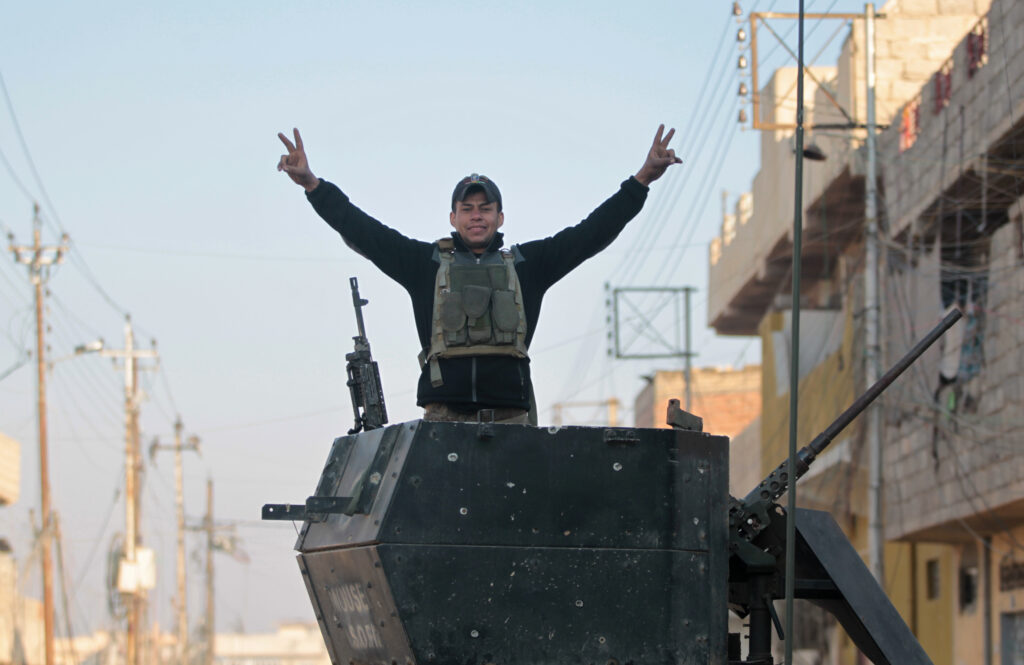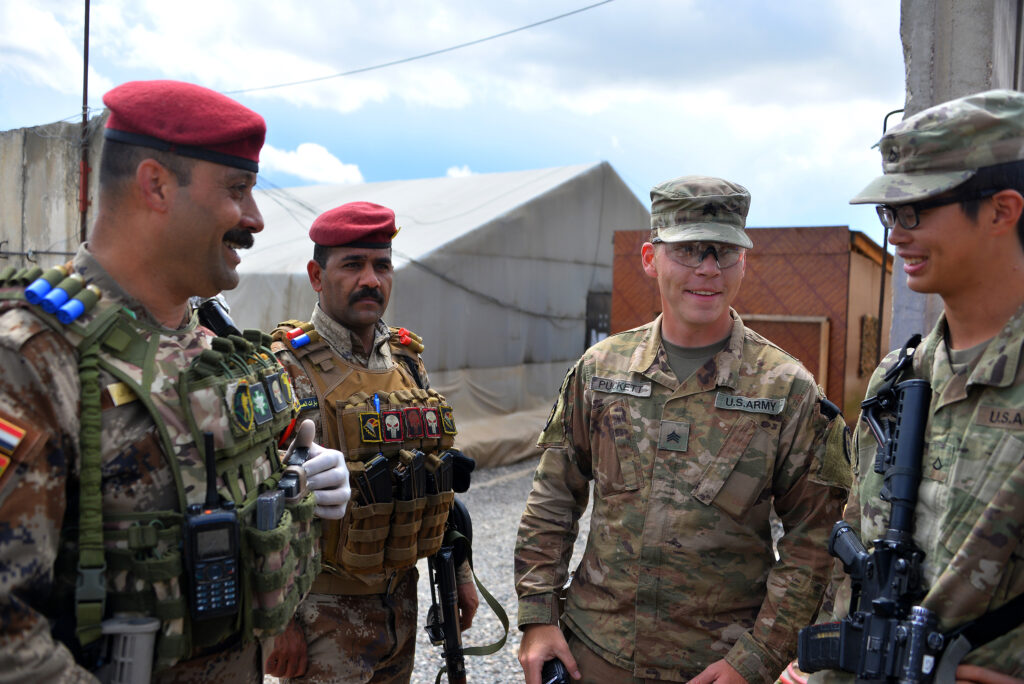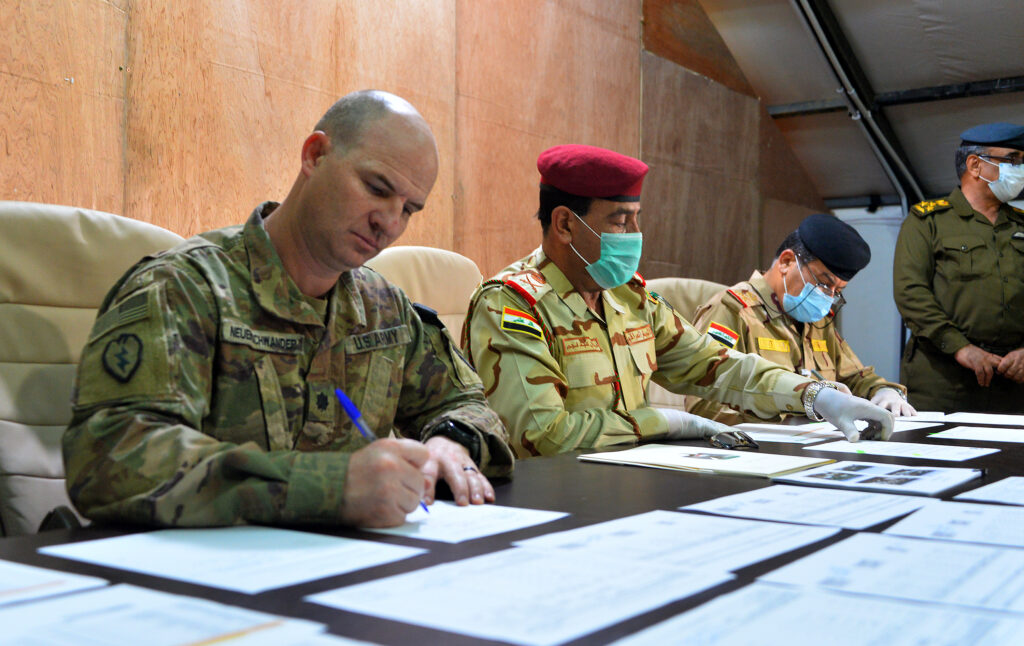“Back in 2014, Daesh was everywhere, including Nineveh, Diyala, and that’s what the Global Coalition came here to do. It was to assist the Iraqi forces in defeating Daesh, and they declared victory over Daesh in 2017,” says Gabby Thompson, a former spokesperson for the Coalition against Daesh.
And in that short sentence, has summarized years of intense fighting, an immense death toll, huge displacement of peoples, and almost unimaginable damage to what might be described as “normal” life in Iraq and north east Syria.

But if victory was declared over Daesh in 2017 in Iraq, surely that’s game over, time to pack up and send the troops home?
It would be too much of a cliché to say that nothing in the Middle East is simple – but in this case, the tectonic plates of geography, international and local politics, religion and history all collide, making something as apparently straightforward as a complete military withdrawal unhelpful and counter-productive.
Apart from any other considerations, Daesh themselves are down but not out: the terrorist group no longer holds land, but sleeper cells persist, its international affiliates are in some cases expanding, and it continues to raise revenue despite having most of its traditional funding routes shut down.
At the heart of attempts to create a more secure Iraq is a military partnership: a partnership which proved incredibly effective in driving the murderous thugs we know as Daesh out of the cities and countryside which they had so ruthlessly colonized from 2014.
The partnership was – and is – between a genuinely international military force, known as the Combined Joint Task Force, or CJTF – and the Iraqi Security Forces, or ISF. It is important to remember that this international force was invited into Iraq by the Iraqi government, with the express purpose of helping rid their lands of Daesh. The troops which remain are only in situ because this invitation is still proffered.

There was a realisation early on that to have a lasting impact on Iraq’s security, the ISF needed to be better trained and equipped. So apart from helping in actual operations to defeat Daesh, the forces of the Coalition set about a parallel training programme, which has now born fruit to the extent that the trainers – and most of the operational forces – are no longer needed.
This is why eight Coalition bases have been transferred to Iraqi command in 2020. Over 50,000 Iraqi security personnel have been trained over the years of this conflict. The ‘Iraqi School of Infantry Non-Commissioned Officer II’ became the first military training establishment to reach full operational capability under ISF control.
“When the Iraqi Security Forces partnered with the Global Coalition Forces, they gained experience and capabilities, especially in training, intelligence gathering, and armaments. Therefore, we believe that our capabilities are now better than before,” said Chief Tahsin Khafaji, spokesperson for ISF.
The Coalition does – and will – provide specialist help instead of the training programmes and operational support of previous years. This specialised work will be delivered through the recently formed Military Advisory Group. The Group will continue to provide expert advisory teams to assist the Iraqi forces with operational planning, intelligence fusion, air support and surveillance for Iraqi-led military operations against Daesh. And across the border in north-east Syria, Coalition forces continue to partner with the Syrian Democratic Forces to safeguard liberated communities against intimidation from residual Daesh cells.

But the Coalition is not a one-trick pony. It recognises that in order to prevent Daesh – and others like them – from coming back, the Iraqi people need to both feel safe and see their country begin to prosper again. The Coalition is helping with a massive programme of removing unexploded mines and other ordnance – but just as importantly, providing cash and expertise for education projects, infrastructure and job creation schemes.
This partnership – between ISF and the Coalition – has liberated millions of people over thousands of square miles. But Daesh are still a presence, lurking in the shadows – and that’s why the Coalition will be there at Iraq’s side until the threat has conclusively gone.

